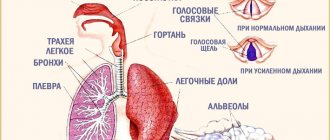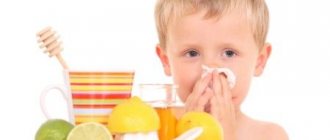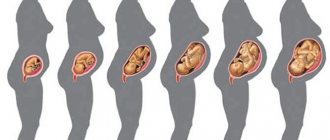What is yawning?
This is a human reflex, inherent in his anatomy.
During yawning, a deep long breath is replaced by a short exhalation, while the mouth opens wide, the person feels a little empty. Doctors call the effect of imitation a mirror neuron reaction: our brain reacts to the yawning of other people with a desire to repeat.
By the way, few people know that in addition to humans, animals of the mammalian order also have this feature. Pets, cats or dogs, often love to yawn after their owners.
Why do we yawn?
Let's figure out what yawning is. This is a multifunctional process inherent in us at the genetic level. Yawning is not taught. Essentially, this is the action of our lungs, starting with a long, full inhalation and ending with a rapid exhalation. In this case, the facial muscles often press on the tear sacs, after which we “cry”, and our mouth opens so much, as if we are trying to catch a fly or a small bird. There are even cases of people going to the emergency room with their jaw dislocated in the process of yawning.
Why do we yawn? It is almost impossible to control this process, since it is involuntary. This is how the body copes with certain difficulties. Yawning helps to “reset” our overstressed brain, cooling it down. We also enrich the body with oxygen. There are also psychological reasons, which will be discussed below.
Interesting Facts
Despite the fact that there is not a single person in the world who has never yawned, few people know about these facts:
- The average yawn lasts six seconds;
- You won’t be able to take an “appetizing” breath of air if people are paying attention to you at this time;
- unsuccessful “yawns” can lead to jaw loss!
- both men and women yawn equally often, but representatives of the stronger sex are less likely to cover their mouths during the process;
- many mammals (mostly predators) often do this in order to demonstrate the size and power of their teeth to the enemy;
- people who are immune to this physiological process have a tougher and more even character. You can take this into account when choosing a life partner;
- A person yawns at intervals of approximately 67-68 seconds.
Why do we yawn after others?
Everyone is familiar with the situation: someone in a company started yawning, and then, after him, everyone became “infected” with it. What is this connected with? The answer to this question takes us back to ancient times. Once upon a time, when there were leaders and packs, yawning served as a signal for sleep or a signal of danger. The leader yawned, then it spread along the chain throughout the pack. In addition, it was a symbol of the unity of all people in the group. Millennia have passed, but the reflex remains.
People who instantly respond to a yawn with a yawn are good empaths, meaning they not only understand the feelings of others, but also feel them. You can test yourself and your friends for empathy. Also, an instant response yawn from your girlfriend (boyfriend) or significant other means their strong attachment to you. Observe yourself and your surroundings carefully.
There are also people who do not yawn in response. These include people with autism and other disorders that affect empathy, people who have good self-control, and children under five years of age.
Croup in children: symptoms and treatment
Croup is characterized by a triad of symptoms:
- barking paroxysmal cough;
- stridor (noisy breathing), especially with crying and excitement;
- hoarseness of voice.
In addition, the appearance of secondary signs of the disease is noted - severe anxiety, palpitations, nausea, hyperthermia.
As respiratory failure increases, all signs worsen, the child’s skin becomes gray or bluish in color, salivation increases, wheezing can be heard even at rest, anxiety is replaced by lethargy.
Children with this diagnosis require hospitalization. The first thing doctors should do is restore the airway. To do this, it is important to reduce swelling and also free the lumen from accumulated mucus.
Drug therapy is prescribed:
- Glucocorticoids are required to reduce laryngeal edema (through a nebulizer, for example).
- Drugs that relieve spasms of the respiratory tract (Salbutamol, Atroventa, Baralgina).
- Inhalations with Ambroxol are performed to remove sputum.
- If necessary, use antihistamines.
In difficult cases, tracheal intubation or tracheotomy with artificial ventilation is required.
If a child has difficulty breathing, now we know what to do.
The baby sighs often and deeply, he does not have enough air, and has shortness of breath. What to do about this, how dangerous is it, and how to improve the baby’s condition? What could be causing a child’s lack of air, what needs to be changed in their lifestyle, does it need to be treated, or will it go away on its own? Read the answers to these questions in our article.
The role of yawning in a child
It may seem incredible, but a baby yawns for the first time in its mother's womb. This is related to brain development. Yawning improves this process. If a baby yawns frequently in the womb, this indicates problems.
The effects of yawning on babies are different from those on adults. Babies, by opening their mouths wide, also “cool” their brain, but instead of being ready for action, they feel the desire to fall asleep. Thanks to yawning, the child’s nervous system “reboots”, taking a break from overexcitation and stress.
When is it necessary to see a doctor urgently?
Difficulty breathing can manifest itself in different ways.
If a child gasps for air and literally suffocates, calling an ambulance is the first thing parents should do.
As prescribed by your doctor, you will need to undergo examinations such as:
- Cardiogram.
- Spirography, that is, checking lung volume.
- Chest X-ray to rule out problems with the structure of the lungs.
- Perhaps a visit to an orthopedist to rule out serious problems with the spine.
- EEG to rule out epilepsy.
- Allergen tests.
Why does a child yawn?
Yawning in young children is caused by a number of reasons.
- Common recurring phenomenon
Every person receives the first such experience in the womb. During ultrasound examinations, doctors often observe how babies yawn - this is a sign of normal fetal development.
- Fatigue
When it comes to newborn children, a possible reason for frequent yawning is that the child is simply tired from the stress. Thus, the body is saturated with oxygen and protects the psyche from overstrain. The same thing happens after prolonged crying.
In children of kindergarten and school age, the phenomenon due to increased fatigue is observed during the period of active study.
- Waking up method
The mechanism of inhalation and exhalation naturally tones your muscles and activates your brain, so a morning yawn naturally helps you wake up.
However, all these reasons underlie normal periodic yawning and cannot answer the question of why a child yawns often. If the phenomenon repeats continuously for 2-3 minutes and is accompanied by heavy sighs, then this may indicate the presence of serious problems - there is a reason to contact a specialist.
Neurological pathologies
Nervous children sleep poorly, throw daily tantrums at their parents, have difficulty making contact, and are easily excitable. With the help of deep breaths, the baby tries to relax the tense, tight muscles and calm down.
A child with such symptoms should be shown to a pediatrician. If the disease is detected in time, it is cured faster and more effectively.
After examination, the neurologist may suspect the following disorders:
- Asthenoneurotic syndrome; The child is depressed, weak, and constantly tired. The cause of the pathological condition is stress. Asthenia can be intrauterine in nature or acquired during life.
- Nervous tic; Provokes yawning in moments of emotional stress, with severe fatigue. It goes away with adequate treatment at puberty.
- Hyperventilation syndrome; Ventilation of the lungs increases several times in 1–2 minutes. The person breathes at a rapid pace, but he does not have enough air. The pathology is classified as a psychoneurological type. The attack is provoked by stress, fear, allergic reactions, and malfunctions of internal organs. It is extremely rare in children.
On a note! In rare cases, frequent yawning is accompanied by epilepsy. Simultaneously with gasping for air, you can notice other symptoms of “falling sickness”: convulsions, numbness, attacks of rage, apathy.
Lack of oxygen in the blood
Hypoxia is typical for newborns, children under 4–5 years of age with a stuffy nose, adenoids, and older adults. The lack of oxygen can be explained by the following reasons:
- Increased heart rate. Heart rate increases for natural reasons or due to heart pathologies.
- Slow metabolic processes. A slowdown in metabolism occurs due to viscous blood; it needs to be thinned with medication, and you need to drink more fluids. Lack of microelements, vitamins, and lack of sleep also negatively affect the functioning of internal organs and systems; the body cannot cope with the load and reduces the speed of work.
- Nervous tension. Stress and unpleasant situations shake up the central nervous system. The system needs more oxygen to restart. Feelings of suffocation and dizziness may occur.
- Sudden hypothermia, overheating. At elevated or lower temperatures, the brain turns on the brakes. Oxygen moves through the cells, the blood more slowly. Hypoxia occurs. The man wants to sleep. Once thermoregulation is restored, oxygen levels stabilize.
We recommend reading: How to calm a crying baby: the Harvey Karp method
Overwork
- Emotional or physical burnout syndrome. In simple words, the child is tired. Constantly lacks sleep. Chronic fatigue provokes yawning. Babies often sigh while awake because they have not slept at night due to colic, itching, diaper rash, hunger due to a lack of mother's milk.
- Static pose. If a baby sits in front of the TV, is frozen in one position with toys, or lies in a crib for a long time without his parents, he will yawn. The muscles become numb, oxygen does not circulate through the blood in a normal rhythm. The body needs physical activity.
- Monotone. Yawning, due to the same cycle of mechanical actions, occurs more often in adults. This is how the body signals the need to change the rhythm of work, shake yourself up, and rest.
Congenital and acquired physiological pathologies
The culprits of the obsessive state, frequent yawning and loud sighs are dysfunction of internal organs or temporary disruptions in their functioning.
- Diseases of the thymus gland. These are DiGeorge syndrome, hyperplasia, myasthenia gravis, tumors. Children with a congenital defect get tired quickly, become out of breath if they climb stairs, and suffer from ischemia and arrhythmias.
- Vegetovascular dystonia. The functioning of the autonomic nervous system is disrupted. The person sleeps poorly, feels pain in the heart area, and the body temperature is unstable. Another common symptom is STS (sad sigh syndrome). In patients with VSD, the functioning of the respiratory system is disrupted, and the person experiences short-term suffocation. All symptoms are part of the internal experience, the stress of the body.
- Ventilation failure. A child with this disorder experiences frequent shortness of breath. First during physical activity, then at rest. Newborns are diagnosed with pathology immediately after leaving the womb. The baby cannot breathe the first breath of oxygen on his own; resuscitation comes to the rescue. The cause of the disorders is prematurity and immaturity of the lungs.
- Asthma. It is more often diagnosed in children prone to allergies, with weak immunity, and who have had pneumonia at an early age. With asthma, temporary asphyxia and shortness of breath occur, and the rhythm of the lungs and bronchi is disrupted.
- Adenoids. The tonsils, enlarged three to four times, block the passage of air. The baby is forced to breathe through his mouth. Lack of oxygen provokes periodic deep sighs and coughing.
- Cardiac pathologies. Defects and heart failure in infants manifest themselves externally in the form of difficulty breathing, deep sighs with sounds.
Colds, viral diseases
ARVI, tonsillitis, pharyngitis cause cough, sore throat, and pain. During the acute course of the disease, the tonsils become inflamed and block the passage of air. The baby experiences mild suffocation and lack of oxygen. The child is forced to swallow it in large portions. Inhalation looks like a yawn.
Other reasons
- Allergies. Dust, wool, and products hazardous to children cause difficulty breathing and rhinitis. The most dangerous scenario is Quincke's edema. Severe shortness of breath, blue lips, panic, swelling of the skin of the face and limbs accompany the attack. You need to urgently call for medical help.
- Curvature of the spine, osteochondrosis. The irregular curvature of the spinal column puts pressure on the internal organs (lungs, bronchi). To breathe deeply, the baby sometimes raises his shoulders and straightens his back. Makes deep yawns and breaths. Scoliosis has a bad effect on sleep, the child constantly experiences pain in the back and legs, and gets tired quickly.
- Pain in the stomach, gastritis. The increased volume of the stomach prevents the respiratory organs from functioning fully. The child is breathing intermittently. May cough.
- Helminths. Cause extensive intoxication of the body. Coughing, sighing, and difficulty breathing are symptoms of an advanced stage of the disease.
- Recovery period after pneumonia, sore throat, pharyngitis, laryngitis. Rehabilitation after acute conditions takes 1–2 months. Infrequent sighs during this period are not a dangerous sign.
Note to parents! You should not hold back a yawn or sigh in moments of extreme fatigue. The brain is actively looking for a way to restore strength.
How often during the day does your child take deep breaths?
- 1 per day
- 2-3 times a day
- 4-5 times a day
- More than 5 times a day
Poll Options results are limited because JavaScript is disabled in your browser.
- More than 5 times a day 84%, 1063 votes1063 votes84%1063 votes - 84% of all votes
- 2-3 times a day 7%, 86 votes86 votes7%86 votes - 7% of all votes
- 4-5 times a day 7%, 83 votes83 votes7%83 votes - 7% of all votes
- 1 time per day 3%, 36 votes36 votes3%36 votes - 3% of all votes
Why does a child yawn and sigh very often?
The baby makes its first yawns while still in the womb - this is evidenced by the results of an ultrasound examination in 3D mode.
Immediately after birth, when only the nurse clears the external respiratory tract of mucus plugs, the baby takes its first deep breath, accompanied by a cry. In order for the baby to scream, doctors turn him upside down and lightly hit him on the buttocks.
Yawning is extremely important for an infant. It helps protect the little person’s nervous system from nervous overstrain and ensures its timely recovery, and also helps reduce body temperature.
Also, during the physiological process, internal organs and blood are enriched with oxygen, a kind of “physical education” for the facial muscles. A newborn's yawn means that he will soon fall sound asleep.
But why does a newborn yawn very often when the number of yawns exceeds 2-3 times per minute? Why is this happening?
Doctors say that the cause of such attacks may be the following factors:
- neurological problems;
- deficiency of oxygen in the blood;
- fatigue and emotional stress.
What to do if your child often yawns and sighs?
If you notice this in your baby, do not let the situation take its course.
- First of all, it is necessary to show the baby to a neurologist to rule out a serious disease. It is very important that the specialist you come to for consultation is experienced and qualified. If you doubt the diagnosis or feel the doctor is inexperienced, be sure to consult another one.
- However, even without such signs in the first month of life, the baby must be referred to this specialist, since many of the neurological problems can occur without pronounced symptoms. Timely diagnosis of a possible disease can help prevent further development and complications.
- If the specialist did not find any problems and stated that the newborn or older child is completely healthy, you should look for reasons for frequent yawning elsewhere.
Causes of frequent yawning
A huge number of different reasons can provoke frequent attacks of yawning. In some cases, its appearance is not caused by any pathologies, while in others it indicates serious illnesses. If you yawn regularly for no reason, you must undergo a medical diagnostic examination.
Physiological
Physiological causes - phenomena when yawning is caused by non-pathogenic factors
. These include:
- Lack of air
- can occur when you spend a long time in a stuffy room, so the body tries to get oxygen. - Overheating of the brain
- when a person is overstrained for a long time, he begins to heat up. When yawning, a person swallows a lot of air, which ensures ventilation of the brain. Open the window and place a cold compress on your forehead to relieve your condition. - Decreased activity of the body
- if the body is tired, all metabolic processes in it slow down. Therefore, metabolic products accumulate in the blood. Thanks to yawning, blood circulation and heart rate are restored in the body, and metabolism is accelerated. - Fatigue and lack of sleep
are the most common causes of frequent yawning. It can be triggered by frequent lack of sleep or chronic fatigue. This is due to the fact that the brain cannot renew itself due to lack of sleep. To start the whole process in it, it needs oxygen.
Note! To get rid of yawning, just cool down and have a good rest. This will restore metabolic processes.
Psychological and emotional
A number of emotional and psychological factors can provoke frequent yawning:
- Severe overexertion
- yawning acts as a psychological release. Such a manifestation may indicate an approaching nervous breakdown. - Chain reaction
- if someone from the environment starts to yawn, the person who sees it repeats after him.
The child’s mouth is constantly open: why - causes, treatment, prevention
For parents, the health of their children is more important than any treasure in the world. Every caring mother, from the very birth of her baby, constantly monitors his condition. Any changes in the child’s body and well-being cause concern.
Parents immediately begin treatment, contact doctors and find out the reasons for what happened. Some phenomena are harmless and do not require intervention, but there are also changes that indicate serious problems.
If you notice that your child’s mouth is slightly open during sleep or activity, then take care to identify the causes of this condition early.
Why does a child's mouth always open slightly?
A half-open mouth in children can be a common habit, or it can be a sign of serious problems. If this condition is periodic, namely, it manifests itself during a cold or ARVI, then you should not panic. A runny nose and congestion force the child to breathe through the mouth, so it is constantly open, especially during sleep.
Most often it appears as a result of:
- problems with ENT organs;
- dental concerns;
- weakness of the muscles around the mouth;
- neurological abnormalities;
- bad habit.
Diseases of the ear, nose and throat
The most common cause of an open mouth in a child is pathology of the ENT organs. We are talking about various problems that cause difficulty in nasal breathing. These include:
- adenoids;
- chronic runny nose;
- otitis;
- sinusitis.
If an otolaryngologist has identified a disease, treatment should begin immediately. Improperly organized activity of the respiratory system leads to a lack of oxygen, which has a detrimental effect on the child’s body. As you get older, adverse effects are likely.
Dental problems
Due to problems with teeth, gums, and oral cavity, a child may feel discomfort when closing his lips, so he often opens his mouth. If there are problems with the growth and position of the teeth, then he may simply not be able to close his mouth.
Caries, leading to the destruction of children's teeth and their loss, the habit of sucking a pacifier and fingers, and rickets are factors in the formation of malocclusion. As a result, the tongue occupies an awkward position in the mouth, which negatively affects the jaws and ultimately leads to disturbances associated with the natural processes of chewing, swallowing, and breathing.
From the moment the baby’s teeth appear, it is necessary to constantly visit the pediatric dentist to monitor their growth and condition. Proper care and cleaning of the oral cavity should be carried out from an early age. This will avoid dangerous deformations and subsequent corrections.
Weak orbicularis oris muscle
A person is able to control his lips (smile, push them out, bring them closer together, turn them inward) thanks to contractions of the muscles that are located around the mouth and are circular muscle bundles. Among their purposes is the function of the sphincter, that is, closing the opening of the mouth. The muscle closes and opens the mouth. Muscular insufficiency of the oral area leads to involuntary opening of the mouth.
In children under one year of age, insufficient tone of the orbicularis muscle is not a cause for concern and the problem disappears during growth. It is important to ensure that this condition does not develop into a habit. If an older child suffers, then it is necessary to strengthen the muscle with facial massage and speech therapy exercises.
Neurological abnormalities
If, along with an open mouth, there is abundant salivation and the tongue or its tip is constantly visible, then this may indicate neurological problems (ischemic damage to the central nervous system, hypertonicity). In this case, a neurologist will help, examine the child and prescribe appropriate treatment.
Adopted bad habit
When the mouth is open with proper breathing, ideal condition of the teeth and oral cavity, normal muscle tone, you just need to explain to the child that this is a bad habit.
There is no reason to worry in this case. Many children play around and imitate their friends, adults, and cartoon characters.
It is important to talk to your child in a timely and calm manner so that he understands how unsightly it looks and what a threat it poses.
What is the danger of the condition?
Some parents do not pay attention to the fact that the child's mouth is constantly open, explaining this condition as a habit. However, things don't always end well. The consequences can be very serious.
If for some reason a child does not close his mouth, then he naturally does not breathe through his nose. Nasal breathing is provided by nature.
In addition to providing the body with oxygen, it performs a number of related functions: it cleanses, moisturizes, warms the incoming air and improves the gas exchange process.
Unpurified and cold air flowing through the mouth carries bacteria into the body, so the baby is more likely to catch colds and be sick for a long time.
Lack of oxygen causes problematic condition and behavior of the child, headaches, and distorted posture. Such children experience difficulties in communicating with people due to speech disorders, bite problems, depression and anxiety. An adult child feels uncomfortable, embarrassed by his appearance.
What can be done in this situation?
Monitor your breathing day and night, during sleep and activity. Make sure your baby's mattress and pillow allow him to sleep in a comfortable position.
Pay attention to your child's teeth and mouth. If you notice any warning signs, take your child to the dentist.
If a child has a cold, resulting in nasal congestion, the doctor will recommend vasoconstrictors. However, it should be remembered that they cannot be used for a long time, and they are generally contraindicated for the smallest children.
Antibiotics can also only be prescribed by a doctor. They become necessary when diseases of the ENT organs are caused by pathogenic microorganisms. For allergic rhinitis, topical antihistamines are prescribed.
If you have any remaining doubts, visit your pediatrician, indicating the time of onset of the pathology and the results of your observation. He will examine the child and, if necessary, schedule a visit to a specialist.
If additional signs that worry the child are clearly visible, then immediately contact a dentist, ENT specialist or neurologist. Only a doctor will determine the exact cause and help get rid of the problem.
Source: https://RosMedPlus.ru/simptomy/rot/u-rebenka-postoyanno-otkryt.html
Diseases that cause yawning
Doctors identify several diagnoses that are accompanied by a frequent desire to yawn in children:
- Overwork – moral or physical;
- Developing sclerosis in children;
- The first signs of epilepsy;
- Exceeding the normal value of intracranial pressure;
- Perinatal encephalopathy;
- Disturbance of normal metabolism;
- Changes in the body's thermoregulation;
- Side effect of taking medications.
If the cause of frequent yawning lies in the disease, then parents often notice that the child has difficulty breathing - this is one of the main symptoms, if you notice it, you should consult a doctor.
Breathing process
Breathing is a complex physiological process. It includes two varieties: external and internal. The respiratory process is divided into the act of inhalation and exhalation. Inhalation is the active part, during which the diaphragm, respiratory muscles of the chest, and muscles of the anterior abdominal wall contract. At the same time, the ribs protrude forward, and movement outward of the chest and abdominal walls is felt. The passive part of the process is exhalation. The respiratory muscles and diaphragm relax, the ribs move down and inward. The physiological respiratory rate is directly dependent on the age of the child: the younger he is, the higher the frequency. With age, this figure approaches that of an adult.
It happens that a small child breathes heavily. Why is this happening?
When should you make an appointment with a pediatrician?
You have already learned about the harmless and serious causes of children's yawning and are sure that your one-year-old child yawns often not because of fatigue and lack of oxygen. In this case, you should consult a specialist:
- The child yawns very often, is lethargic, and too sleepy. This may indicate migraines, chronic fatigue, or emotional burnout.
- Fainting.
- When talking with a neurologist, it is better to mention frequent bouts of yawning.
- The child yawns several times per minute.
- The first “bells” of epilepsy are observed. If your baby also yawns, consult a doctor immediately.
Also, frequent yawning can signal the following diseases or pathologies:
- High intracranial pressure.
- Hydrocephalus.
- VSD (vegetative-vascular dystonia).
- Multiple sclerosis (this disease also occurs in children).
What to do if your child sighs often?
Acute asphyxia occurs in several cases:
- A child has an asthma attack.
- If there is intolerance to drugs, foods, volatile substances, if too many allergens have accumulated in the blood.
- The baby has Quincke's edema.
- A foreign object has entered the oral or nasal cavity.
In such cases you need to act quickly:
- Call an ambulance.
- Calm the child down.
- Establish a calm breathing rhythm.
- Soak a towel in cold water and place it on the baby's forehead and throat.
- Pat your baby on the back to make him feel protected.
- Help him spit the object out of his mouth.
In this case, you cannot turn the baby upside down, make any movements, or induce vomiting. Place the victim on the floor with his back up, and slap him between the shoulder blades with your palm several times. As soon as the child begins to cough and randomly push the object out, stop tapping.
- Hold the baby reclining.
- Move obvious allergens away from the baby and give antihistamine drops.
Important! You cannot leave a suffocating baby alone for a second. The parent leaving the room will cause panic and increase shortness of breath. Wait for the doctor together.
How to help your baby at home?
If your child yawns frequently, try doing all the manipulations listed below, and then contact a neurologist.
Let's start with the fact that the causes of harmless frequent yawning can be overwork, overexcitation and lack of oxygen.
| Cause | How to solve a problem | It won't be superfluous | Forbidden |
| Overwork |
|
|
|
| Overexcitement |
|
|
|
| Lack of oxygen |
|
|
|
Now you have figured out in which cases you should consult a doctor, and in which cases you should take preventive measures. Yawning is a very interesting process that helps the body and sends signals in case of a problem. Our pets also yawn when tired and before bed. Here's another interesting fact: dogs and cats yawn back at people as a sign of affection and love for their owners.
How to alleviate the child's condition?
There are ways that can alleviate the child’s condition and help prevent drying out of the larynx and relieve spasms:
- humidification of indoor air using special devices;
- inhalation of warm, humidified air;
- inhalation with mineral water, soda or saline solution.
For inhalations, you can use aerosol and steam inhalers; in hospital settings, steam-oxygen tents. We remind you once again that inhalations can only be done after consulting a doctor.
What can you do in this case?
- Make sure that the temperature of the room where the baby sleeps and stays most of the time meets sanitary and hygienic standards. The temperature in the room should not exceed 25° C, and humidity - 55-60%. Be sure to ventilate the room even in winter, and to prevent the baby from catching a cold, take him to another room during the procedure.
- To keep the humidity normal, use humidifiers during the heating season or simply place damp, clean things on the radiators. Do not place the baby crib near a hot radiator.
- Give your baby regular, clean water. This will help normalize the water balance in the body and provide vital moisture to all organs. Children especially need water in the summer.
- Get outside as often as possible. The main reason why a baby often yawns and takes deep breaths is a lack of oxygen. Even in a very well-ventilated room, the baby experiences a lack of air, and therefore long walks - at least 2-3 times a day - can compensate for this. For walking, choose environmentally friendly places if possible: parks, squares, forests, embankments, etc. You should also take into account the time you choose to go outside. The air is cleanest in the morning, that is, before 11-00 and after 16-00, and especially in the late evening. However, walking alone too late should be avoided for obvious reasons.
- Follow your baby's routine. Discipline, as you know, is the key to success not only in school and career, but also in health. Try to put your baby to bed and wake him up at the same time, no matter the circumstances. Do not neglect daytime sleep either, it is very useful even for adults, and even more so for preschool children.
- Since one of the reasons why a child often yawns is emotional stress, try to ensure that the heir is in the most psychologically comfortable atmosphere. Don’t shout in front of him, don’t turn on the TV or radio loudly, and visit noisy and crowded places less often.
We recommend reading: Finger gymnastics for children from birth to 6 months
In the evenings, before water procedures and before naps, it would be useful to give your baby a light massage of the arms, legs, back and tummy. A pediatrician or pediatric nurse can teach you massage.
Well, most importantly, through both actions and words, let your baby understand his importance to you and show him your love as often as possible.
How to control yawning?
In order to reduce yawning, you can resort to the following actions:
- take active breaths through your nose and exhale through your mouth;
- if you feel a sudden yawning, it is advisable to drink some cool water;
- when you notice a frequent urge to yawn, you need to open the window, ventilate the room well, it is advisable to lower the temperature a little;
- Cucumbers and watermelon can help, as they contain more liquid;
- It is recommended to place a dampened and cooled towel on your head.
Why does a child open his mouth often, is it dangerous?
27.02.2018
- 1 Reasons
- 2 What is the danger
- 3 How you can act
Hello, dear parents. In this article you will find out why a baby often opens his mouth. You will become aware that this may be preceded by a number of factors. Find out the dangers of not breathing through your nose. Find out how you can solve this problem.
Causes
A child can sleep with his mouth open if he has diseases of the ENT organs
Let's try to find the answer to the question of why a child opens his mouth more often than usual, let's look at the most common reasons for this.
- adenoids;
- sinusitis;
- rhinitis;
- otitis.
- Dental problems:
- frequent use of a pacifier;
- early caries;
- malocclusion as a consequence of neurological abnormalities or rickets;
- finger sucking;
- improperly developed dental system.
- Muscle weakness of the perioral area. This reason can occur if a newborn opens his mouth too often; it is less common in preschoolers. This phenomenon before the age of one is not considered a serious deviation from the norm. But you should not ignore this, because this phenomenon may disappear on its own, or it may become a habit, which will lead to health problems.
- Neurological problems. In addition to the main symptom, there will also be increased salivation, and the tip of the tongue may stick out. This may indicate both hypertonicity, ischemic lesions, and more serious pathologies.
- Copying a bad habit. This reason is typical for children who start going to kindergarten and older. The kid simply copies, imitates someone.
- Hypertonicity of the muscles of the neck on the back side, as well as the upper girdle of the shoulders, leads to active mouth breathing. This reason is typical for newborns. As a rule, it goes away after a couple of months and does not require treatment.
- The consequences of an allergic reaction, due to which the toddler is unable to maintain nasal breathing.
- A sleeping toddler may not have his mouth closed if he lies in an uncomfortable position or touches infants.
What is the danger
If treatment is not started in time, problems with posture may develop.
If a child sleeps with his mouth open or, when he is awake, his mouth is often open, then it is important to notice this in time, find out the reason for what is happening, and save the baby from this phenomenon.
With an open mouth, the baby most likely cannot breathe through the nose, which can lead to serious health consequences. It is important that the little one inhales the air through his nose so that he can moisturize, cleanse himself and warm up. In addition, when passing through the nasal sinuses, special brain receptors involved in blood gas exchange and controlling the flow of oxygen to the brain must be activated.
If a toddler does not breathe through his nose, he:
- often catches colds, illnesses are more severe;
- deviations appear with the bite;
- posture deteriorates - there is a tilt of the head forward, which puts a load on the facial joint, and this leads to headaches, as well as pain in the lumbar region and along the entire spine;
- there are problems with speech, cognitive skills deteriorate;
- the child becomes depressed, sleep disturbance appears, the baby becomes inattentive and absent-minded;
- development of adenoids is observed;
- a double chin is formed;
- the bridge of the nose widens, accompanied by a narrowing of the nasal passages;
- lack of ability to close lips.











